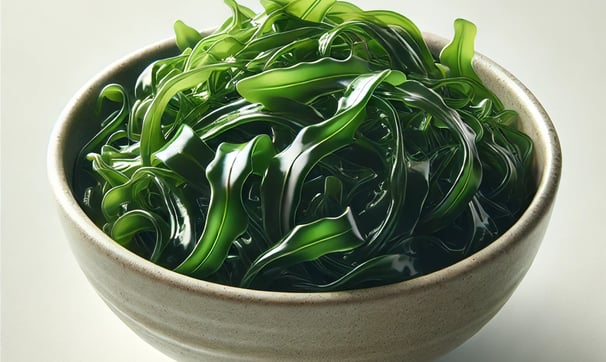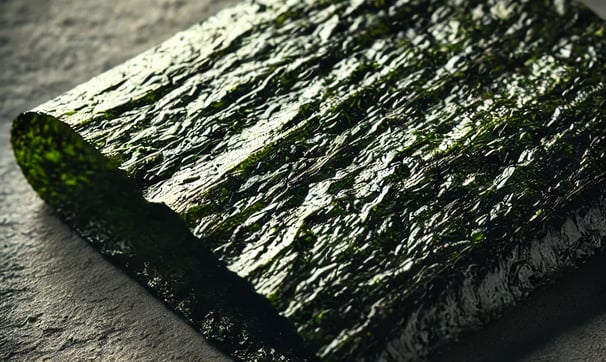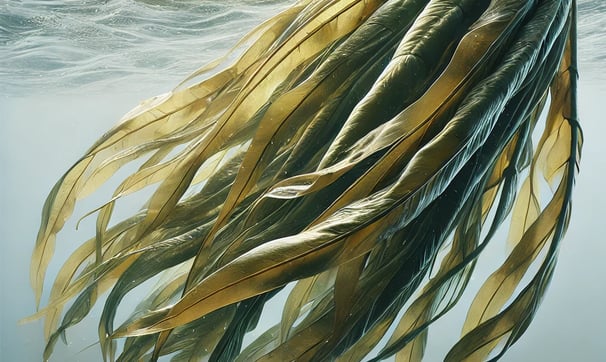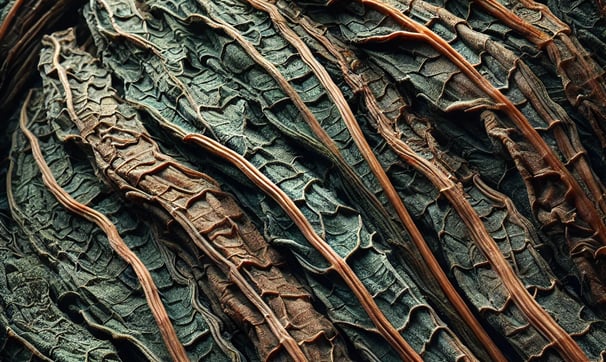Sea Vegetables
HOLISTIC NOURISHMENT


When you think of veggies, you probably imagine your usual suspects—spinach, kale, broccoli. But what if I told you that some of the healthiest vegetables on the planet are doing their thing underwater, totally out of sight? Enter sea vegetables: the unsung heroes of the ocean, packed with nutrients, and ready to elevate your diet (and possibly your street cred at the farmer’s market).
Let’s dive into the wonderful world of sea vegetables, explore the types that are worth tasting, and see why you should be adding these ocean-grown goodies to your plate.
1. Wakame: The Salad Star
If you’ve ever had a seaweed salad at your favorite sushi spot, you’ve met wakame. It’s that slightly sweet, silky seaweed that makes you feel like you’re eating healthy without trying too hard. Wakame is rich in calcium, iodine, and magnesium, making it a bone-boosting, metabolism-supporting powerhouse. Plus, it’s got fucoxanthin, a compound that’s been shown to help burn fat. Yes, you heard right—seaweed that helps you shed pounds. If that's not a reason to love wakame, I don’t know what is.
2. Nori: The Sushi Wrapper
Nori is the Beyoncé of sea vegetables—famous, versatile, and always stealing the spotlight. If you’ve ever eaten sushi, you’ve had nori. This crispy seaweed sheet is high in protein and fiber, and it’s packed with vitamins A, C, and B12. It’s basically the snack that makes you feel like you’ve got your life together while you munch on it. Plus, it’s great for your skin and immune system, thanks to its antioxidants. Who knew your sushi wrapper was such a health champ?
3. Kelp: The Overachiever
Kelp is the overachieving cousin in the sea veggie family. It’s not just one of the fastest-growing plants in the world (growing up to 2 feet per day!), but it’s also loaded with nutrients. It’s a fantastic source of iodine, which is great for your thyroid health. Kelp noodles have become a low-carb, gluten-free darling in health circles. Add some kelp to your soups, salads, or smoothies, and give your body a mineral boost. And bonus: kelp also helps balance hormones. Talk about a multitasker!
4. Dulse: The Bacon of the Sea
If you’ve been dreaming of bacon that’s actually good for you, look no further than dulse. This red seaweed has a savory, umami flavor that some say resembles bacon when fried (yes, we’re serious). Dulse is rich in potassium, iron, and protein. It’s also super high in fiber, making it a great digestive aid. So, next time you’re craving something salty, why not reach for some crispy dulse instead of your usual chips? Your taste buds—and your heart—will thank you.
5. Kombu: The Flavor Bomb
Kombu is a staple in Japanese cooking, often used in making dashi, a flavorful broth that forms the base of many dishes. But kombu isn’t just a taste enhancer—it’s also a nutritional goldmine. It’s loaded with iodine, calcium, iron, and magnesium. Adding a strip of kombu to your soups or stews doesn’t just boost flavor; it boosts nutrition, too. Oh, and it’s also known to help soften beans when you cook them, so toss some kombu into your next batch of beans to avoid that whole “beans, beans, the magical fruit” situation.
Benefits of Sea Vegetables
You might be wondering, “Why should I eat these sea veggies when I already have a fridge full of land-based greens?” Well, here’s why:
Nutrient Powerhouses: Sea vegetables are loaded with essential vitamins and minerals—many of which are harder to find in land vegetables, like iodine and certain trace minerals. They’re also packed with antioxidants, which help protect your body from harmful free radicals.
Supports Thyroid Health: Thanks to their high iodine content, sea vegetables are a go-to for keeping your thyroid (and metabolism) in check. Your thyroid can be a bit picky, and iodine is one of the few things it craves, so feed it well with some nori or kelp.
Gut Health: Sea veggies are high in fiber, which helps with digestion and keeps things moving smoothly in the gut department. Plus, certain types of seaweed contain prebiotics that feed the good bacteria in your gut, keeping your microbiome happy.
Heart Health: These ocean veggies are full of potassium and omega-3 fatty acids, which help lower blood pressure and cholesterol levels. They’re also low in calories, so they pack a nutritional punch without adding to your waistline.
Sustainability: Sea vegetables grow quickly and don’t require freshwater or fertilizer, making them a super sustainable food source. In fact, seaweed farming is one of the most eco-friendly types of farming on the planet.
How to Add Sea Vegetables to Your Diet
The good news is, adding sea vegetables to your diet is easier than you think. Here are some tips:
Sprinkle dried nori on top of your salads, soups, or stir-fries for a salty crunch.
Add a sheet of kombu to your next pot of soup or stew to boost flavor and nutrition.
Make a seaweed salad using wakame for a refreshing side dish.
Use dulse flakes as a seasoning for veggies, popcorn, or even eggs for that smoky, bacon-like flavor.
So there you have it—sea vegetables are not just for sushi rolls and mermaids. Whether you’re looking to add some serious nutrition to your diet, improve your gut health, or just try something new, sea vegetables are worth exploring. Your body—and maybe even the planet—will thank you. 🌿














